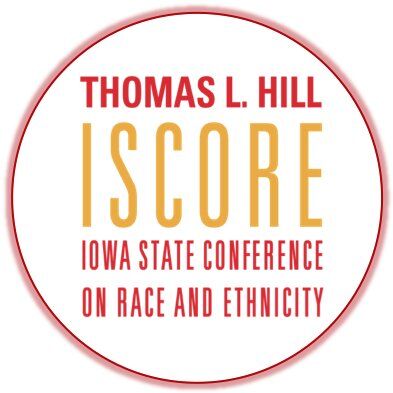Experiencing ISCORE virtually
March 3, 2021
Returning for its 21st anniversary, the Thomas L. Hill Iowa State Conference on Race and Ethnicity (ISCORE) will be Thursday and Friday and available for the general public in order to provide a space for those who attend to unpack and reflect on different aspects of race and ethnicity during the online conference.
According to the ISCORE website, ISCORE is a comprehensive forum on issues of race and ethnicity at Iowa State University and beyond. The local conference is designed to model the National Conference on Race and Ethnicity in Higher Education (NCORE).
The NCORE-ISCORE Project consists of a delegation of Iowa State University students, faculty and staff who attend NCORE and then return to campus to share information and experiences with the university community.
Japannah Kellogg, director of the NCORE-ISCORE Office at Iowa State, explained that ISCORE will be a bit different this year because not only will it be online, but the conference is spread out to take place during two days instead of one.
“We really took into consideration that many students and staff are spending every waking moment in front of a screen right now,” Kellogg said.
In order to avoid making the situation even more difficult, according to Kellogg, the ISCORE team decided to spread breakout sessions out over the course of the two days, as well as add an additional keynote speaker.
These sessions will begin at the welcome session at 8:45 a.m. Thursday. They will take place throughout both Thursday and Friday and then conclude at the closing ceremony at 2 p.m. Friday. As well as breakout sessions, keynote speakers will be presenting throughout the conference. Novotny Lawrence, a professor of journalism at Iowa State, will speak Thursday; Michael Benitez, vice president of diversity and inclusion at Metropolitan State University, will speak Friday; and ISCORE Senior Vice President Toyia Younger will give closing remarks Friday.
While navigating through this difficult time and planning this conference during a pandemic, Kellogg said there is a light that can be found. A record-breaking number of attendance has been counted for this event, at roughly 1,700 people registered for ISCORE.
“Perhaps it has to do with the conference reaching [attendees] rather than [attendees] reaching it, but I’m looking forward to when we are back in person to having some kind of hybrid for easier access to this event,” Kellogg said.
Kellogg also explained that even though the conference is online this year, it is still important to continue having conversations about race and ethnicity, even virtually.
“Under the current climate, I think it’s essential to have a platform and a space to have deeper conversations around the topics of race and ethnicity,” Kellogg said. “I think when it wasn’t a virtual conference, ISCORE has been something people appreciated the opportunity to present and appreciated the opportunity to listen.”
Kellogg said the goal of this conference is to create a space for people to be proud of and to learn about these various topics. He said among the 45 sessions during the ISCORE conference, five sessions are being hosted by current students while the other 40 are being hosted by Iowa State and Ames community members.
When deciding what attendees should take away from ISCORE, Kellogg said folx should focus on maximizing their conference experience.
“The ISCORE platform is critical to our campus success because it provides an opportunity for our campus to share important information related to race, ethnicity and inclusion,” Kellogg said. “Even though ISCORE is going to be a virtual conference, we expect a good turnout.”
Kellogg explained an individual’s experience with ISCORE depends on what they already know going into the different sessions, but overall, the goal is for each participant to gain knowledge, understanding and appreciation of human differences and the social issues marginalized communities face.
“There are a lot of things that are impacting our marginalized students, and I think that’s something that everyone has to take ownership of,” Kellogg said. “So by attending ISCORE with a plan and a purpose only helps our campus, even if you leave with just a deeper curiosity about a certain topic, that can maximize your conference experience.”
During the virtual conference, you can use the Whova web browser, desktop app or the mobile app in order to create your agenda for the conference as well as access the individual sessions.
ISCORE sessions can be found here, and navigational tools for the online conference can be found here.
Throughout the conference, attendees can use the ISCORE Action Plan in order to sort their thoughts, reflect on their session and figure out how to implement the things they learn into their everyday life.
Any other information about ISCORE can be found on their website, or people can reach out to the ISCORE team via email at [email protected] or call 515-294-6500.







